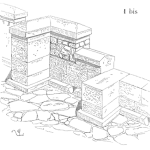
Failure Fingerprint: Plastic Deformation in Bearings
(Also known as “Brinelling,” “False Brinelling,” or “Plastic Flow” depending on cause and appearance)
Abstract: Unlike fatigue cracks or abrasive wear, plastic deformation represents a threshold failure where the material’s yield strength is exceeded, leading to permanent dimensional change. In high-precision components like bearings, even microscopic plastic flow the “failure fingerprint” can trigger catastrophic system vibration or total seizure. This article explores identifying markers of Brinelling, torsional yielding, and metallurgical slip.














 Ask a question or send along a comment.
Please login to view and use the contact form.
Ask a question or send along a comment.
Please login to view and use the contact form.